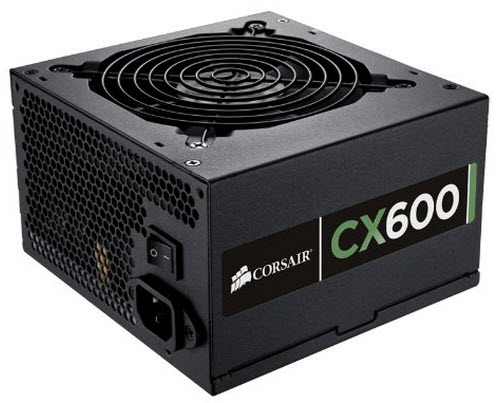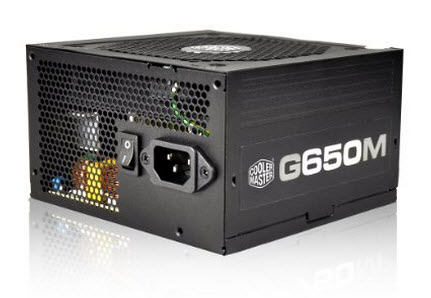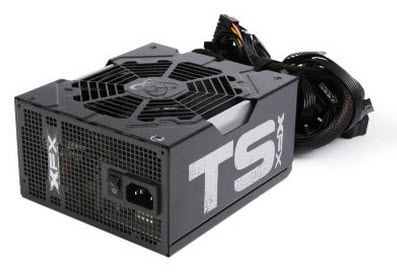Antec VPF Series 650W PSU Review
Antec's VPF650 is a budget PSU made by Delta Electronics to achieve high-performance-per-dollar. In the US, the VPF units are sold under the EarthWatts Green series.
Why you can trust Tom's Hardware
Load Regulation, Hold-Up Time And Inrush Current
To learn more about our PSU tests and methodology, please check out How We Test Power Supply Units.
Primary Rails And 5VSB Load Regulation
Load Regulation testing is detailed here.
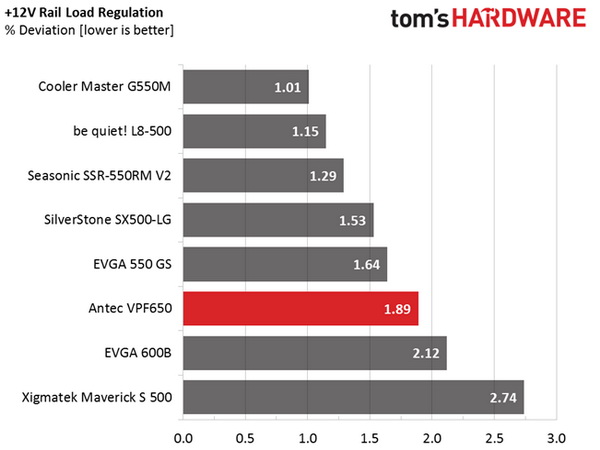
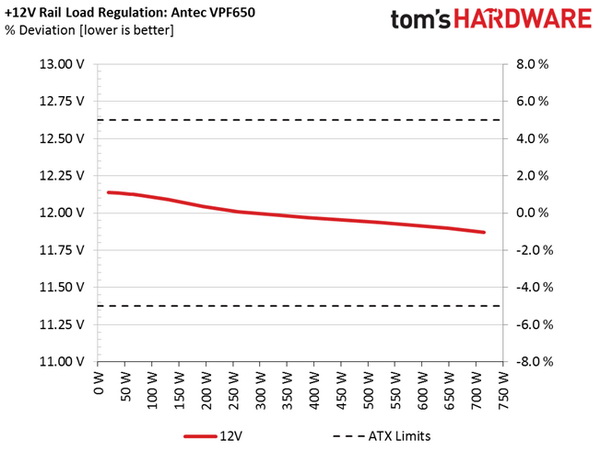
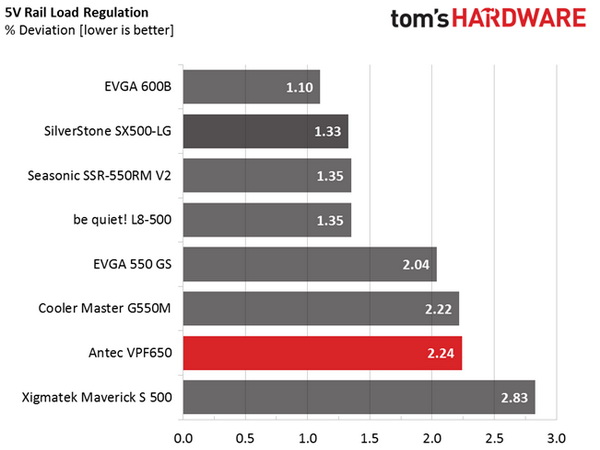
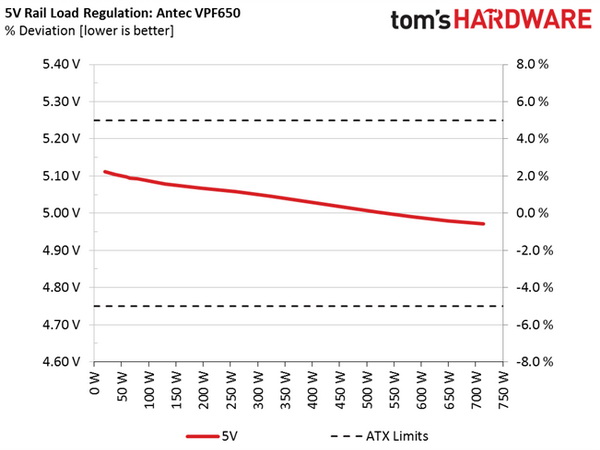
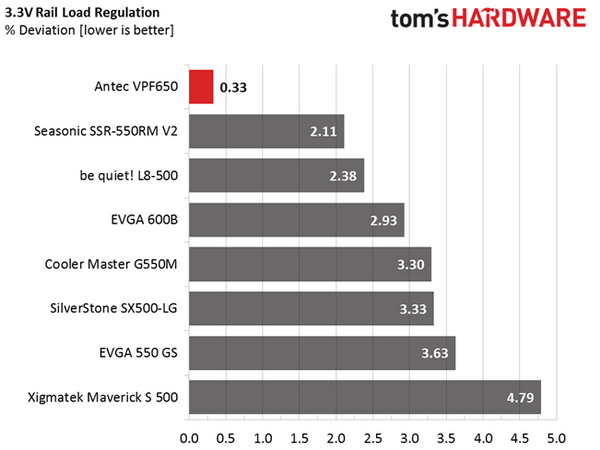
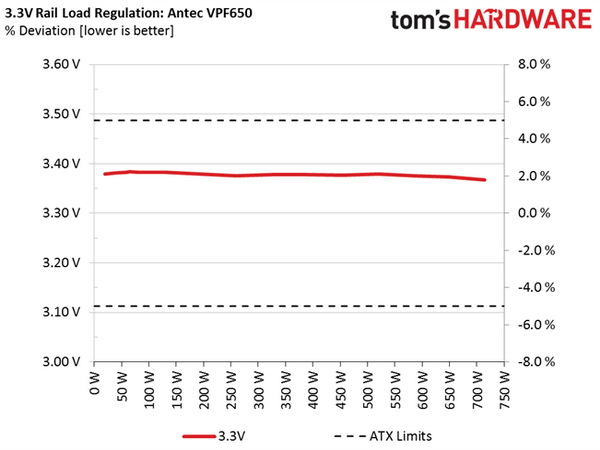
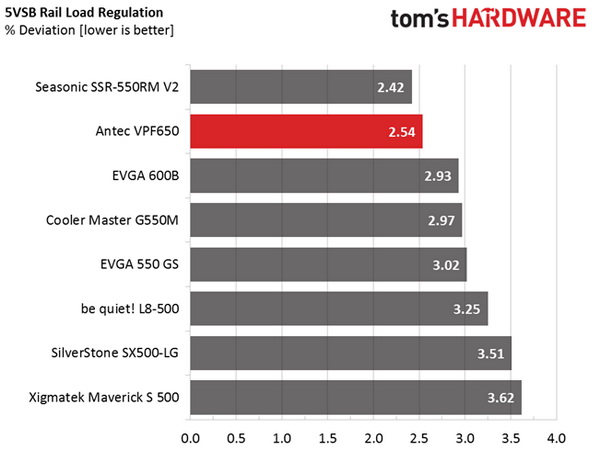
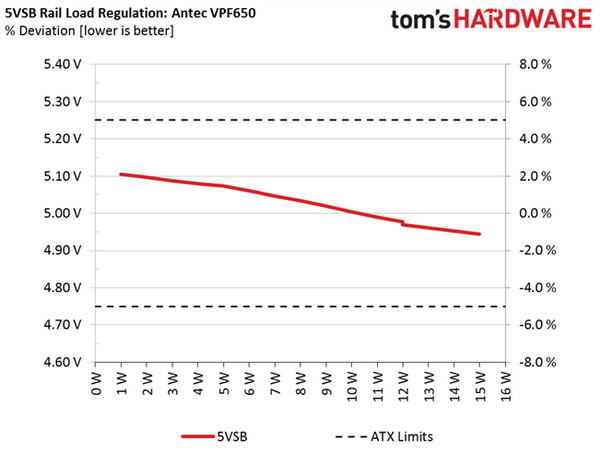
Hold-Up Time
Our hold-up time tests are described in detail here.
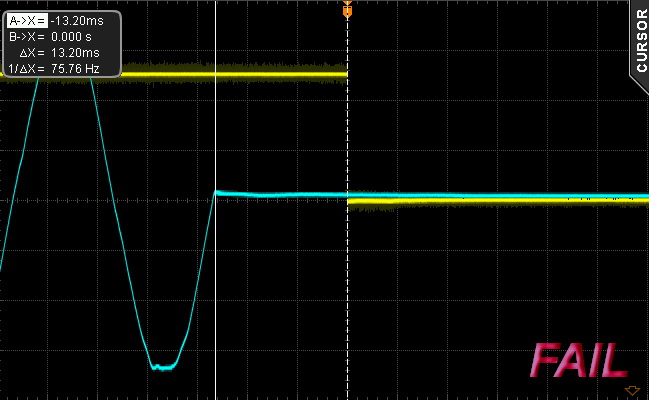
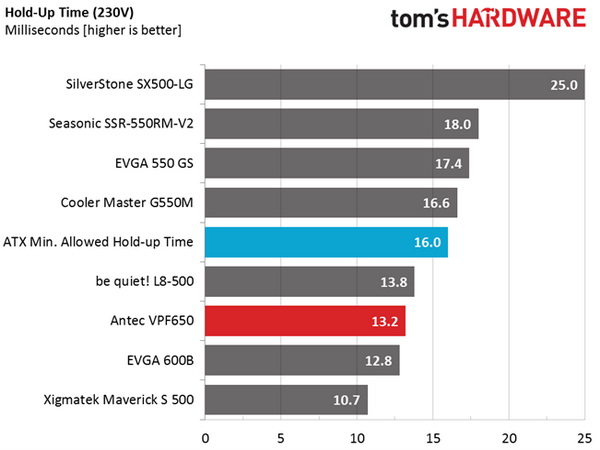
The hold-up time doesn't manage to meet the ATX spec's requirements. With such a low-capacity bulk cap, this didn't come as a surprise. In fact, we expected even less hold-up time.
Inrush Current
For details on our inrush current testing, please click here.
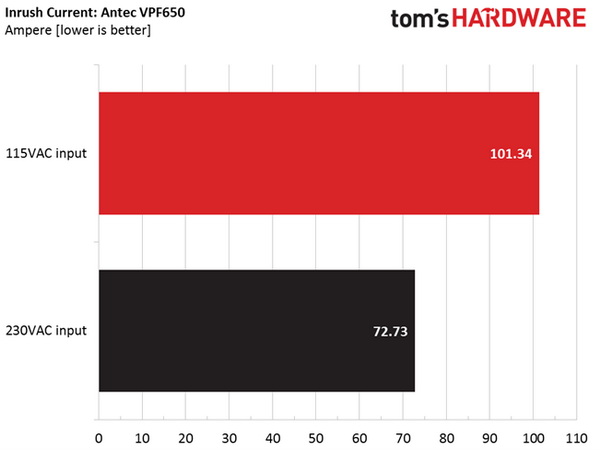
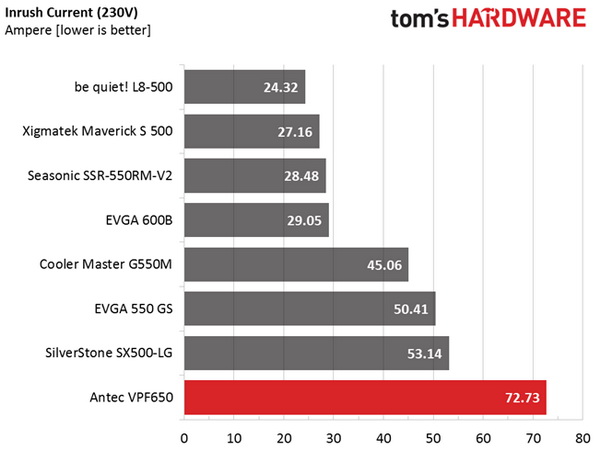
The inrush current that this medium-capacity PSU registered is the highest among all PSUs we have tested so far. It's a design flaw and should be fixed immediately.
Load Regulation And Efficiency Measurements
The first set of tests reveals the stability of the voltage rails and the PSU's efficiency. The applied load equals (approximately) 10 to 110 percent of the supply's maximum in increments of 10 percentage points.
Get Tom's Hardware's best news and in-depth reviews, straight to your inbox.
We conducted two additional tests. During the first, we stressed the two minor rails (5V and 3.3V) with a high load, while the load at +12V was only 0.10A. This test reveals whether a PSU is Haswell-ready or not. In the second test, we determined the maximum load the +12V rail could handle with minimal load on the minor rails.
| Test | 12V (A/V) | 5V(A/V) | 3.3V(A/V) | 5VSB(A/V) | PowerDC/AC(W) | Efficiency (%) | Fan Speed(RPM) | Fan NoisedB(A) | TempIn/Out(°C) | PF/AC (V) |
|---|---|---|---|---|---|---|---|---|---|---|
| 1 | 3.562A | 1.963A | 1.949A | 0.984A | 64.78 | 77.56 | 910 | 30.1 | 38.89 | 0.970 |
| 12.126V | 5.094V | 3.384V | 5.073V | 83.52 | 41.77 | 115.1V | ||||
| 2 | 8.179A | 2.948A | 2.924A | 1.185A | 129.75 | 81.75 | 910 | 30.1 | 40.20 | 0.987 |
| 12.091V | 5.079V | 3.383V | 5.060V | 158.71 | 43.90 | 115.1V | ||||
| 3 | 13.185A | 3.454A | 3.429A | 1.384A | 194.85 | 83.71 | 1000 | 33.0 | 41.12 | 0.993 |
| 12.042V | 5.068V | 3.379V | 5.047V | 232.76 | 45.52 | 115.1V | ||||
| 4 | 18.202A | 3.951A | 3.907A | 1.585A | 259.74 | 84.44 | 1350 | 41.3 | 41.32 | 0.995 |
| 12.009V | 5.058V | 3.375V | 5.034V | 307.61 | 45.89 | 115.1V | ||||
| 5 | 22.882A | 4.957A | 4.883A | 1.789A | 324.77 | 84.51 | 1650 | 44.5 | 41.96 | 0.997 |
| 11.987V | 5.045V | 3.378V | 5.020V | 384.31 | 46.98 | 115.1V | ||||
| 6 | 27.569A | 5.962A | 5.859A | 1.994A | 389.68 | 84.21 | 1840 | 47.6 | 43.06 | 0.997 |
| 11.967V | 5.031V | 3.378V | 5.004V | 462.75 | 48.32 | 115.1V | ||||
| 7 | 32.259A | 6.978A | 6.837A | 2.199A | 454.63 | 83.62 | 1960 | 48.3 | 43.28 | 0.998 |
| 11.952V | 5.017V | 3.377V | 4.990V | 543.72 | 48.89 | 115.1V | ||||
| 8 | 36.963A | 7.994A | 7.811A | 2.410A | 519.57 | 82.89 | 2470 | 60 | 44.07 | 0.998 |
| 11.936V | 5.003V | 3.379V | 4.977V | 626.86 | 49.92 | 115.1V | ||||
| 9 | 42.133A | 8.511A | 8.321A | 2.411A | 584.60 | 82.29 | 2470 | 60 | 45.33 | 0.998 |
| 11.916V | 4.990V | 3.376V | 4.970V | 710.46 | 51.53 | 115.1V | ||||
| 10 | 47.054A | 9.040A | 8.801A | 3.032A | 649.50 | 81.80 | 2470 | 60 | 45.49 | 0.999 |
| 11.897V | 4.980V | 3.373V | 4.944V | 794.01 | 51.86 | 115.1V | ||||
| 11 | 52.625A | 9.056A | 8.821A | 3.034A | 714.47 | 81.00 | 2470 | 60 | 46.17 | 0.999 |
| 11.872V | 4.972V | 3.367V | 4.937V | 882.03 | 52.89 | 115.1V | ||||
| CL1 | 0.098A | 14.020A | 14.005A | 0.000A | 119.51 | 74.03 | 910 | 30.1 | 42.48 | 0.988 |
| 12.104V | 5.000V | 3.443V | 5.083V | 161.44 | 47.85 | 115.1V | ||||
| CL2 | 53.975A | 1.002A | 1.003A | 1.000A | 655.00 | 82.38 | 2470 | 60 | 46.69 | 0.999 |
| 11.887V | 5.038V | 3.319V | 5.025V | 795.11 | 53.52 | 115.1V |
Load regulation on the +12V and 5V rails is average. At 5VSB, it's good for the standards of this rail, while at 3.3V it was nothing less than amazing. In the efficiency section, the PSU achieves lower results than the 80 PLUS Bronze requirements, but we will give it a pass since we conducted our tests at a much higher ambient temperature. As a result, it's natural to measure lower efficiency.
Speaking of high operating temperatures, the VPF650 didn't have a problem delivering its full power continuously at up to 46 °C (114.8 °F), but its cooler was extremely noisy under these conditions. The 120mm fan rotates at full speed once the PSU is seriously stressed, outputting an annoying noise level that reaches 60 dB(A).
Current page: Load Regulation, Hold-Up Time And Inrush Current
Prev Page A Look Inside And Component Analysis Next Page Efficiency, Temperature And Noise
Aris Mpitziopoulos is a contributing editor at Tom's Hardware, covering PSUs.
-
CTurbo I hope Delta is not going to get out of the consumer psu business completely. They've been one of my go-to oems for years. Top notch reliability.Reply -
Onus Antec has been one of my go-to standards for years as well. Though it has been surpassed in efficiency, I may need to put my SG-650 in my will because of its anticipated durability.Reply -
2Be_or_Not2Be When the author says "... Delta no longer has an interest in this market..." - what market is he talking about? I seem to recall that quite a few of my Dell servers had Delta OEM PSUs, and I think a number of Dell desktops had custom Delta PSUs as well. So is it only the consumer market that they don't want to supply anymore?Reply -
iam2thecrowe Reply16537381 said:When the author says "... Delta no longer has an interest in this market..." - what market is he talking about? I seem to recall that quite a few of my Dell servers had Delta OEM PSUs, and I think a number of Dell desktops had custom Delta PSUs as well. So is it only the consumer market that they don't want to supply anymore?
probably. There is now too much competition in the consumer psu market for it to be really profitable for some companies. It would make sense if a company only wanted to do anything other than generic PC ATX psu's, because they can charge a lot more for it. -
Aris_Mp Yeap Delta is away from consumer market. They mostly make OEM PSUs now. As far as I know only Antec has a contract with them for desktop PSUs.Reply
